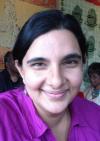In the past few years, immunotherapies, or treatments that leverage the body’s natural immune system to fight disease, have emerged as an exciting treatment option for advanced-stage lung cancer patients. While a small percentage of patients have ongoing, long-term success with immunotherapy, many patients who are treated with immunotherapy show only an initial response to treatment. T-cells are specialized immune cells involved recognizing and fighting cancer. The timing of the diminishing response may be correlated with T-cells not being activated effectively, also known as T-cell exhaustion.
“It kind of seems like the immune system gets pushed really hard with the immunotherapy and then it just needs a break,” notes Joshua Bauml, MD, assistant professor of Medicine at the Hospital of the University of Pennsylvania. “T-cell exhaustion has been documented in patients with chronic conditions, such as cancer and hepatitis.”
Dr. Bauml wanted to find a way to increase the effectiveness of immunotherapy for his patients by finding a way to give the immune system a short period of time to recover or “reset” before continuing to fight cancer.
“The interferon signaling pathway is a part of the immune system that is known to play a key role in stimulating inflammation and T-cell activation,” explains Dr. Bauml. “I was interested in studying the interferon signaling pathway as a possible way to reset the immune system in lung cancer patients being treated with immunotherapy.”
Previous studies in mice had shown how a step-wise approach (starting with immunotherapy only, then adding a short-term dose of an inhibitor, itacitinib, of the interferon pathway, then returning to only immunotherapy) was successful in reducing tumor size. The research suggested that by blocking the interferon pathway for a short time, the immune system might be having an opportunity to refresh its ability to fight the cancer.
Building upon these findings, Dr. Bauml wanted to look at the effects of inhibiting the interferon pathway in advanced-stage non-small cell lung cancer (NSCLC) patients. His goal was to conduct a phase 2 trial of 48 metastatic NSCLC patients to determine if the addition of itacitinib, an inhibitor of the interferon pathway, would be successful in helping to reinvigorate the immune system and increase the effectiveness of the immunotherapy treatment.
In 2019, Dr. Bauml applied for and was awarded a Career Development Award from LUNGevity to fund this important clinical trial and the accompanying research that Dr. Bauml proposed.
In addition to monitoring patient side effects and tumor sizes in this phase 2 clinical trial, Dr. Bauml is collecting tumor biopsy samples and blood samples for subsequent analysis. Using a laboratory technique called flow cytometry, Dr. Bauml and his team will be able to study the cellular receptors found on the T-cells in the patients’ blood and within tumors at different stages of treatment. This will allow his team to gain a deep understanding of the interplay between the interferon pathway and immunotherapy.
Although enrollment for the trial was slow during the initial months of the COVID-19 pandemic, Dr. Bauml and his colleagues have already enrolled and treated 20 patients in the clinical trial. “The side effects from adding in the interferon inhibitor have been very mild,” notes Dr. Bauml. “No one has been hospitalized, and no one has asked to stop taking the medication.”
“The results have been very exciting. Our hope is that one of our next steps could be to continue this work in a phase 3 randomized clinical trial, but we have to wait and see what the final results reveal before moving forward.”
“The LUNGevity award has been transformative for my career,” he says. “I would not be able to conduct this clinical trial and do the important data analysis without it. I am particularly grateful for the opportunity to meet so many leaders in the lung cancer field. Their support and comments have been invaluable to my research.”
Part of Dr. Bauml’s research interest lies in promoting innovative clinical trials that quickly and safely translate knowledge gained from basic science laboratories into the clinic to help patients.
“My ultimate goal is to improve outcomes for patients with lung cancer,” explains Dr. Bauml. “We still have a long way to go, but I am confident that by working together we can build a world where no one dies of lung cancer.”
Learn more about immunotherapy in our comphrensive, medically vetted overview.
Related Reading:
- LUNGevity's Research Program
- VIDEO: Which Immunotherapy is Right for me?
- Working Toward a Blood Test to Predict Immunotherapy Success
 Juhi Kunde, MA, is a science writer for LUNGevity.
Juhi Kunde, MA, is a science writer for LUNGevity.
